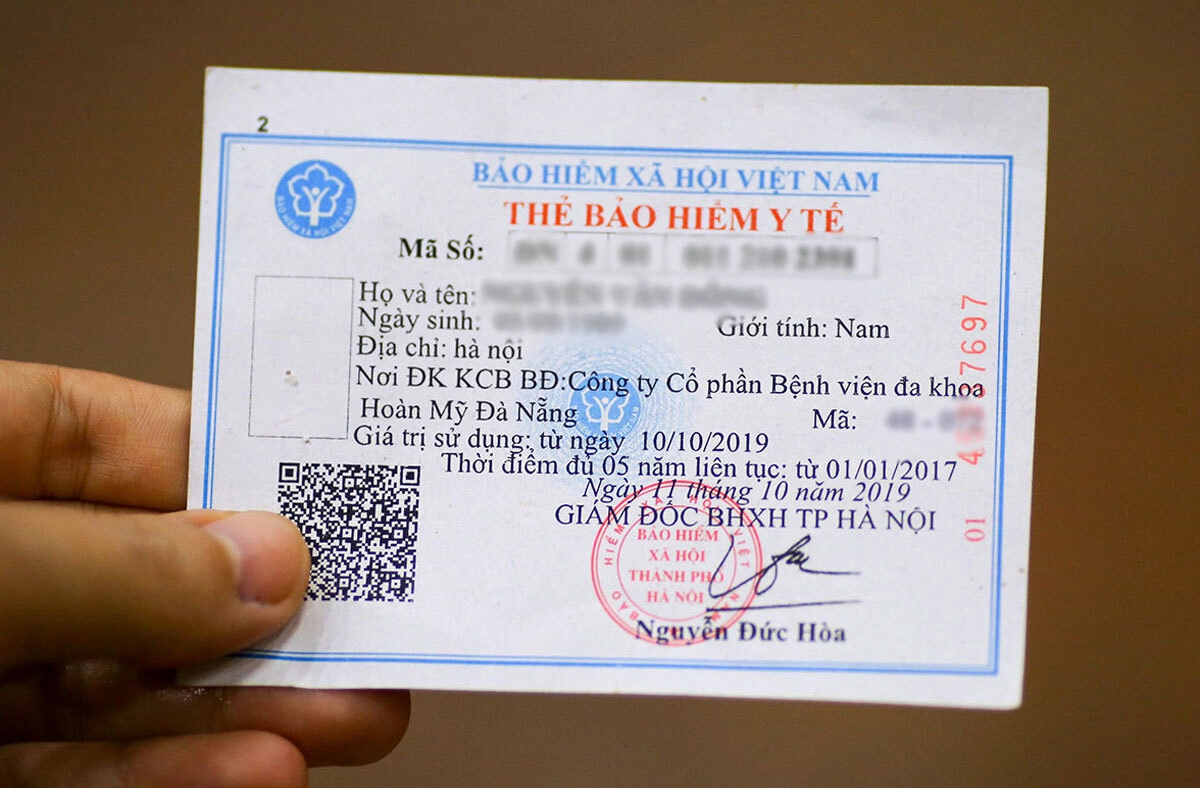Decree 188, detailing and guiding the implementation of the amended health insurance law, was recently issued by the government and took effect on 15/8.
The current base salary is 2,340,000 VND. Participants in household-based health insurance; those living and working, or being cared for in charitable and religious organizations; workers on unpaid leave or with suspended labor contracts will maintain their current contribution rate of 4.5% of the base salary.
Members participating in household-based health insurance receive reduced contributions as follows: The first member pays 4.5% of the base salary, the second, third, and fourth members pay 70%, 60%, and 50% of the first member's contribution, respectively. From the fifth member onwards, the contribution is 40% of the first member's contribution.
Therefore, the first member in a household still contributes 4.5% of the base salary (1,263,600 VND/year, equivalent to 105,000 VND/month). The second member contributes 884,520 VND/year, and subsequent members contribute 758,160 VND, 631,800 VND, and 505,440 VND, respectively.
The state budget will support a minimum of 50% of health insurance contributions for students; local security force members; village health workers; and village midwives. Previously, the support level was 30%.
With this increased support, students will now contribute 52,650 VND/month, a reduction of 21,060 VND. In a policy impact assessment report, the Ministry of Health projected an increase of 3,700 billion VND in the state budget to raise the health insurance contribution support from 30% to 50% for students.
The Ministry of Health estimates there are about 100,000 village health workers and 1,600 village midwives nationwide. Of these, 665 village midwives also serve as health workers, meaning about 950 individuals independently perform the role of village midwife. According to calculations, the projected state budget required to cover these two groups is over 44,800 billion VND.
 |
Health insurance card. Photo: Nguyen Dong |
Health insurance card. Photo: Nguyen Dong
Additionally, the state budget fully covers health insurance contributions for near-poor households residing in poor communes. Near-poor households and ethnic minorities living in communes not classified as economically disadvantaged areas receive a minimum of 70% support. For ethnic minorities, the support period is 36 months from the time their commune is no longer considered economically disadvantaged.
By the end of 2024, over 95.52 million Vietnamese people had health insurance, achieving a coverage rate of 94.2% of the population. Last year, there were 186.2 million inpatient and outpatient visits nationwide, with nearly 143,000 billion VND in claimed payments (an increase of 18,685 billion VND compared to the same period in 2023). By the end of 2024, the Health Insurance Fund had a surplus of 47,600 billion VND.
Le Nga












